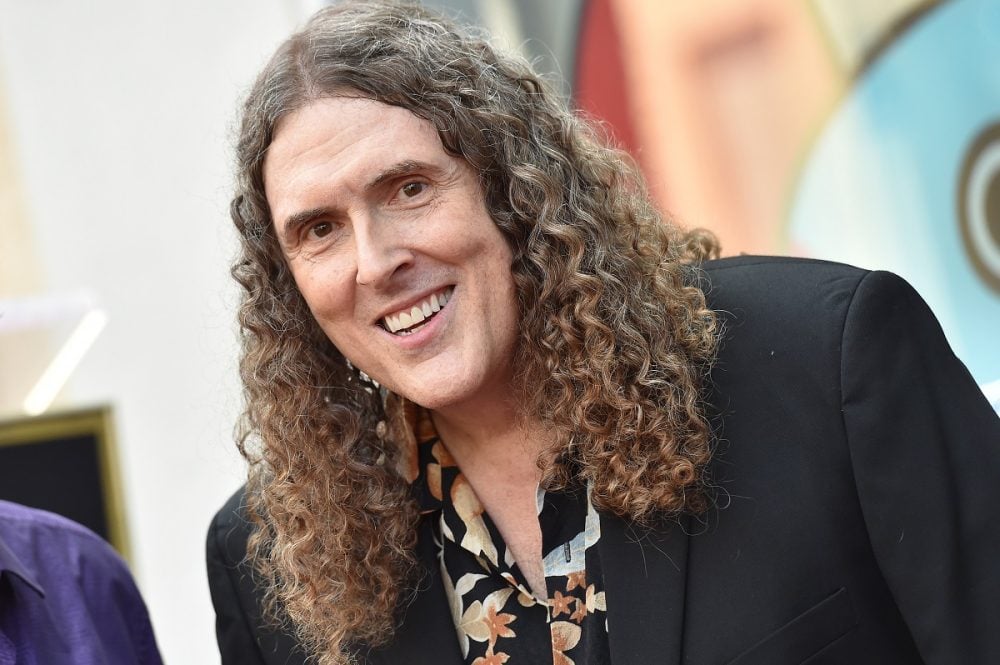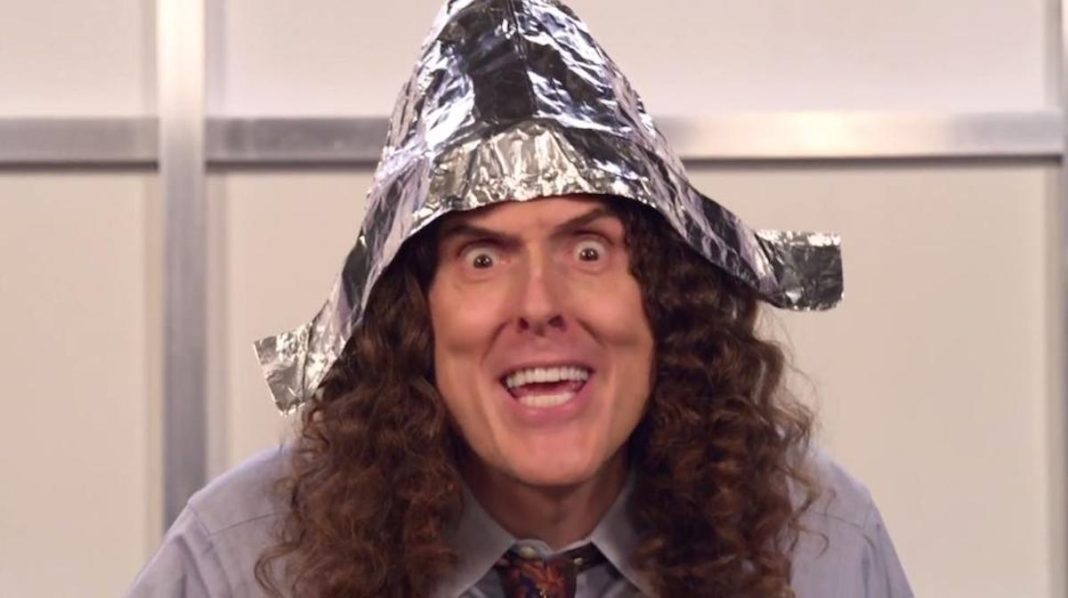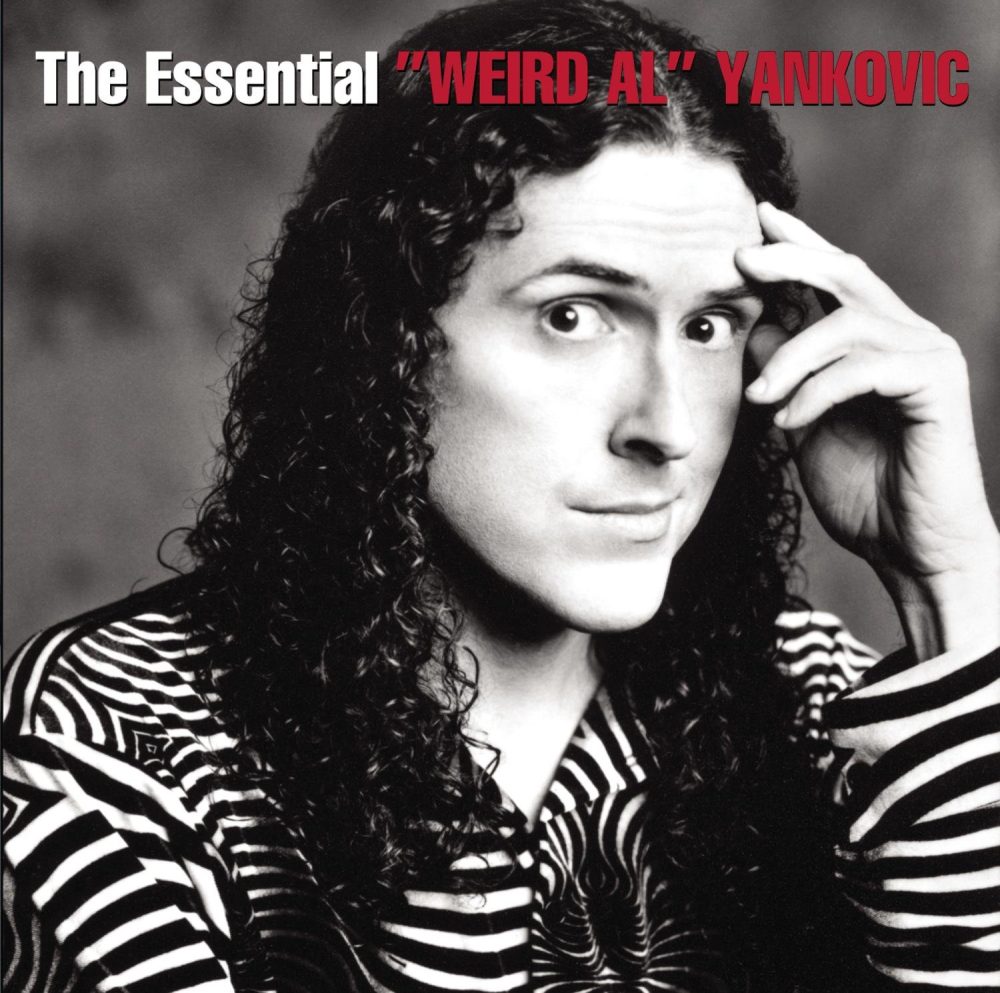The Beat’s Gregory Paul Silber has been accused of having a bit of an… obsessive personality. Each week in Silber Linings, he takes a humorous look at the weirdest, funniest, and most obscure bits of comics and pop culture that he can’t get out of his head.
Ever since I saw the trailer for Weird: The Al Yankovic Story, the upcoming biopic starring Daniel Radcliffe as the titular novelty music icon, I’ve been pondering how the 62-year-old musician and comedy star has remained popular for a rather consistent 40-year period. Even the most acclaimed comedians don’t always maintain relevance long after their big breaks come to pass. And even the most beloved non-comedic musicians rarely stay at the top of their game for more than a decade or two after their first albums. So how the hell do you explain “Weird Al” Yankovic, a nasally-voiced nerd with a penchant for polka medleys of popular songs played on an accordion?
Before we try to unpack that further, let me tell you about my own history with Weird Al. The first time I remember hearing about him was around 2003, when I was in 6th grade. My English teacher gave us an assignment where we had to write about whatever we were learning at the time to the tune of an existing song of our choosing, and she described Weird Al to us in an attempt to explain what a parody was – a word that I don’t think I had heard before either.
“You know the Madonna song ‘Like a Virgin’?” she said, as some kids snickered at the mention of “virgin.” “Well he has a song called ‘Like a Surgeon.’ Or have any of you heard the Michael Jackson song ‘Beat It’? Weird Al has a song called ‘Eat It’ and it’s all about food.”

Frankly, the way she described it sounded pretty stupid. First of all, I was hearing about this from a teacher, which already isn’t cool (apologies to any teacher friends and family members who may be reading this but you know what I mean). Second, I was born in 1991. I’m not sure I had ever heard those Madonna or Michael Jackson songs before even in their original form. But mostly, just hearing those punny titles, they sounded painfully unfunny. This “Weird Al” guy sounded like a dork.
And look, Weird Al is clearly a dork. We’ll get to that later. But what I was mostly missing was that certain je nais se quoi Al brings to the table that can only be recognized from hearing his songs for yourself. Some time later, my teacher played one for us – I think it was “Like a Surgeon” – and I was immediately taken by how much fun Weird Al sounded like he was having. That nasally voice and intentionally-obnoxious delivery wouldn’t be appealing for a “serious” musician, but for Al, it reminded me of what a friend’s geeky-but-hilarious older brother might sound like if he had the inexplicable ability to replicate the sound of hit pop songs to a tee. That class clown sensibility had me hooked.
It wasn’t long before I discovered other gems in Weird Al’s catalogue. By 2006, more than 25 years into his career, Al inexplicably scored his biggest hit with “White and Nerdy,” a parody of “Ridin'” by Chamillionaire featuring Krayzie Bone, and even many of the popular kids at school knew the lyrics. Some time after that my little brother acquired The Essential “Weird Al” Yankovic, which became a staple of family car rides even as my dad complained about the surprising violence of some of those songs (If you don’t know what I’m talking about, listen to “Why Does This Always Happen to Me,” a style parody of Ben Folds featuring Folds himself on piano).
It may sound like a no-brainer, but a huge reason why Weird Al has remained so popular for so long is that the jokes contained within his songs are so sharply written. He hardly invented novelty songs, or even direct song parodies, but he’s endured better than his inspirations and imitators because he rarely goes for the obvious joke. I’ve heard a lot of other performers do song parodies, especially as YouTube allowed amateur entertainers to get their own spotlights like never before, but few of them are half as funny as Al. Most of them either mock the specific nitpicks of the songs they’re poking fun of directly, or tie it into current events that’ll be forgotten within a month. None of them would be clever enough to take an at-the-time inescapable megahit like “Royals” by Lorde, and turn it into “Foil,” a song that begins as an ode to the virtues of aluminum foil as a means to prevent food waste, but transforms midway through into a mockery of conspiracy theorists.
[Editor’s Note: And the Reno 911! actor cameos in the music video are just the cherry on top. —AJK]
More than other genres of entertainment across different forms of media, I don’t think comedy ages well as a general rule. That’s not to say there isn’t plenty of comedy from decades past that’s still funny today, but that like pop music, comedy is so often tied to the particular moment in which an audience first hears it. Weird Al certainly isn’t immune to this. I don’t much enjoy his very early work which consisted mostly of songs about food played on an accordion. Plus, despite the fact that Al’s comedy can generally be described as “clean,” at least in the sense that it’s free of profanity, a handful of his lyrics might be considered offensive to some groups.
If you thought I didn’t know that “spastic” is considered a highly offensive slur by some people… you’re right, I didn’t. Deeply sorry.
— Al Yankovic (@alyankovic) July 20, 2014
But I do believe that part of the reason why Weird Al has weathered so many decades in the entertainment industry is that he possesses a rare self-awareness. In an age where so many entertainers, especially comedians, throw hissy fits about a perceived “cancel culture,” Al has always been willing to evolve, including recognizing his own missteps. When Vulture asked several comedians about the jokes they “most regret” – in Al’s case, his use of the word “midget” in the ’80’s which is now considered a slur – he explained that “some comics make it their thing never to apologize for anything. And as we are seeing today, some politicians are the same. If I feel like I did something that I’m sorry for, of course I’ll apologize. I mean, we all make mistakes and sometimes I did things I shouldn’t have done. And sometimes you have to call yourself out on it.”
Obviously, I’m not saying that the key to being a great comedian is mere inoffensiveness (nor am I saying that I only enjoy squeaky-clean, non-provocative comedy… I just prefer for the provocations to punch up). I think Weird Al’s self-awareness has bolstered his talents in other ways, too. I love the way he owns his, well, weirdness. He may have ditched the glasses that were once part of his signature look (he no longer needs them thanks to corrective surgery), but his wild hair and penchant for obnoxiously “loud” shirts remain. And while the polka medleys tend to be my least favorite parts of any of his albums, I appreciate the way he commits to a bit. I don’t think “popular songs as polka” is nearly as funny as he apparently does, but I love that he loves it.
Weird Al’s unapologetic nerdiness is also endearing. His songs are chock-full of references to Star Wars, comic books, internet culture, old cartoons, and even actual science. He doesn’t do what he does for the cool kids, but the geeks… albeit ones who may be hipper than they let on around the jocks.
Whatever the case, while Weird Al hasn’t released an album since 2014’s Mandatory Fun, between the upcoming biopic and the fact that his general pop culture ubiquitousness hasn’t slowed down, I don’t see any reason why he won’t remain popular for decades to come. As long as there are geeky smartasses looking for something funny to listen to, sing at karaoke, or bug their parents, there will always be an audience for “Weird Al” Yankovic.









Al is clearly talented (I liked his movie of some years back) but his music has never appealed to me because it is mostly harmless. It is bland and inoffensive. Look at Eric Idle’s music which is both edgy and hilarious. I’ve never found anything Weird Al did to be very funny. Humorous, but not really funny.
Comments are closed.